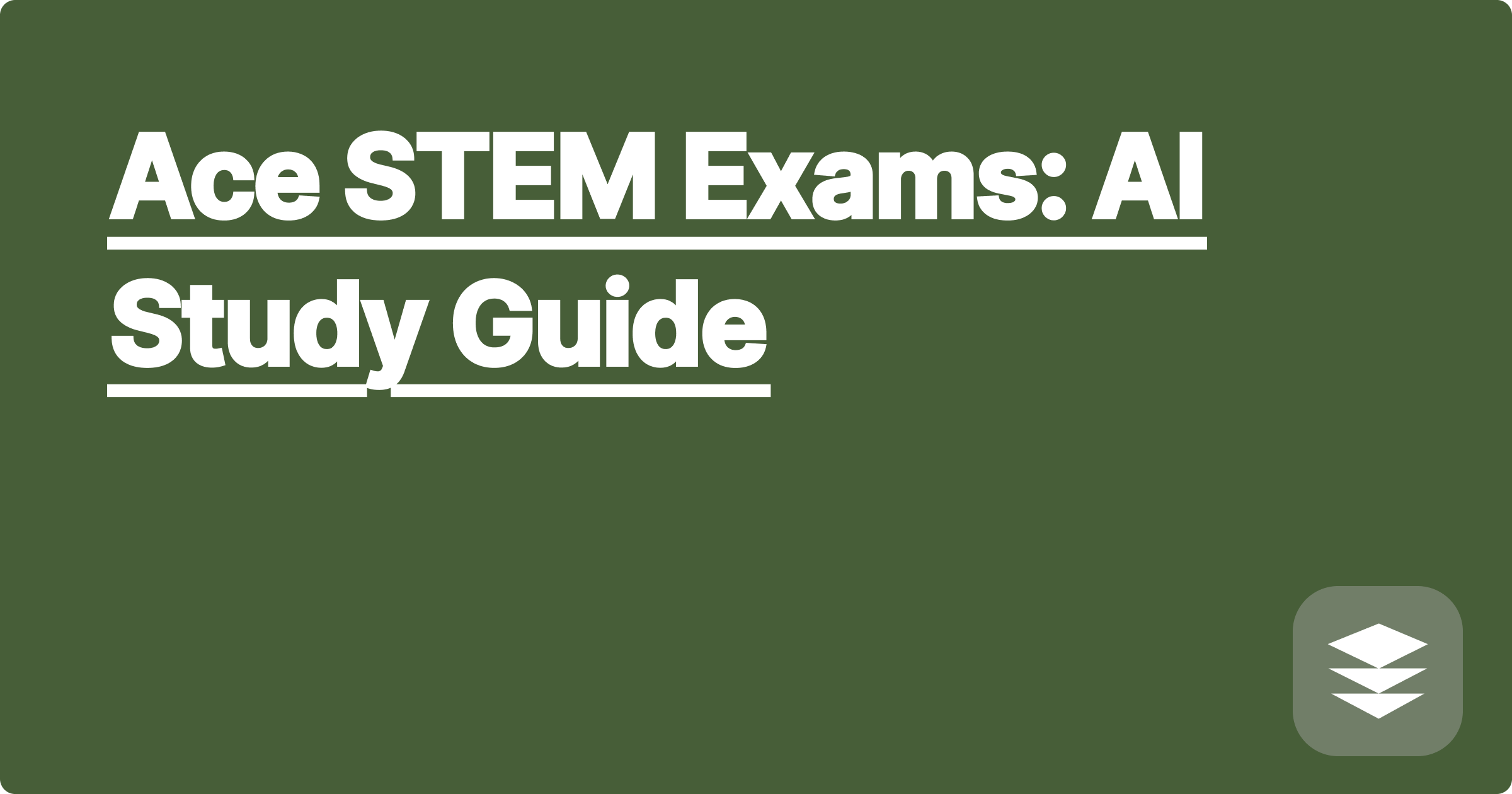
The demanding world of STEM education and research often presents a significant challenge: effectively managing vast amounts of information and complex concepts while preparing for rigorous exams. Students and researchers alike struggle to balance in-depth understanding with the practical need to perform well on assessments. This struggle is where the power of artificial intelligence can step in to offer innovative solutions. AI tools are emerging as valuable allies, providing personalized learning experiences, streamlining study processes, and ultimately empowering STEM individuals to achieve academic success.
This shift towards AI-powered learning is not just a trend; it's a fundamental change in how we approach education and research. For STEM students, AI can personalize study plans, offer targeted practice, and provide instant feedback. Researchers can leverage AI to quickly analyze data, explore complex concepts, and even generate hypotheses. Embracing these tools can significantly improve comprehension, boost efficiency, and ultimately lead to better exam performance and research outcomes.
STEM exams often cover a broad range of complex topics, requiring students to synthesize information from multiple sources and apply theoretical knowledge to practical problems. Traditional study methods, like passively reading textbooks and reviewing notes, can be inefficient and often fail to solidify deep understanding. Furthermore, the sheer volume of information can be overwhelming, leading to information overload and exam anxiety. Researchers face similar challenges, needing to quickly process and analyze vast datasets, stay up-to-date with the latest advancements, and effectively communicate complex findings. This constant pressure to learn and perform can lead to burnout and hinder progress. These challenges highlight the need for more effective and personalized learning and research tools, which AI can address.
AI-powered tools like ChatGPT, Claude, and Wolfram Alpha offer a range of functionalities that can revolutionize the way STEM students and researchers approach their work. ChatGPT and Claude, for instance, excel at explaining complex concepts in clear, concise language, providing personalized tutoring, and generating practice questions tailored to specific learning needs. These language models can break down intricate theories into digestible chunks, offer different perspectives on the same concept, and even simulate exam scenarios for targeted practice. Wolfram Alpha, on the other hand, shines in its computational abilities. It can solve complex equations, generate graphs, perform symbolic computations, and provide step-by-step solutions to mathematical problems. By integrating these tools into their workflow, STEM individuals can optimize their study and research processes.
Imagine you're struggling to grasp a complex concept in thermodynamics. You can start by prompting ChatGPT or Claude to explain the concept in simpler terms, providing analogies or real-world examples. Then, you can ask the AI to generate practice questions related to that specific concept, testing your understanding and identifying areas for improvement. If you encounter a difficult equation, you can use Wolfram Alpha to solve it step-by-step, understanding the underlying principles and methodology. This interactive learning process fosters deeper understanding and retention compared to passive learning methods. For research, imagine needing to analyze a large dataset. You can use AI tools to identify patterns, generate visualizations, and even suggest potential hypotheses based on the data. This not only saves valuable time but also opens up new avenues for exploration and discovery.
Consider a student studying the concept of derivatives in calculus. They could ask ChatGPT, "Explain derivatives in simple terms and provide real-world examples." The AI might explain derivatives as the rate of change of a function and provide examples like the velocity of a car or the growth rate of a population. The student could then ask for practice problems involving derivatives, receiving instant feedback on their solutions. Alternatively, if a researcher is working with a complex equation like the Navier-Stokes equations in fluid dynamics, they can use Wolfram Alpha to simplify the equations under specific conditions or even visualize the flow patterns. This allows them to focus on interpreting the results rather than getting bogged down in tedious calculations. Another example could involve using ChatGPT to summarize a complex research paper, extracting key findings and highlighting the methodology used.
To effectively leverage AI in STEM studies and research, it's crucial to develop a strategic approach. Start by identifying your specific learning needs and research goals. Then, explore different AI tools and choose the ones that best align with your requirements. Don't be afraid to experiment with different prompts and functionalities to discover the most effective ways to utilize these tools. It's also important to remember that AI is a tool to augment, not replace, your learning and research process. Continue to engage with traditional learning resources, such as textbooks and lectures, and use AI to enhance your understanding and efficiency. Finally, critically evaluate the information provided by AI tools, ensuring its accuracy and relevance.
To conclude, AI-powered tools offer a transformative approach to STEM education and research. By embracing these tools and integrating them strategically into your workflow, you can significantly improve your learning outcomes, boost research productivity, and ultimately achieve academic success. Start exploring these powerful tools today and discover how they can empower you to excel in the challenging yet rewarding world of STEM. Don't hesitate to experiment and find the strategies that work best for you. The future of learning and research is here, and it's powered by AI.
AI Homework Help: STEM Made Easy
Ace STEM Exams: AI Study Guide
AI for Lab Reports: Data Analysis
AI: Your Physics Homework Solver
Engineering AI: Boost Your GPA